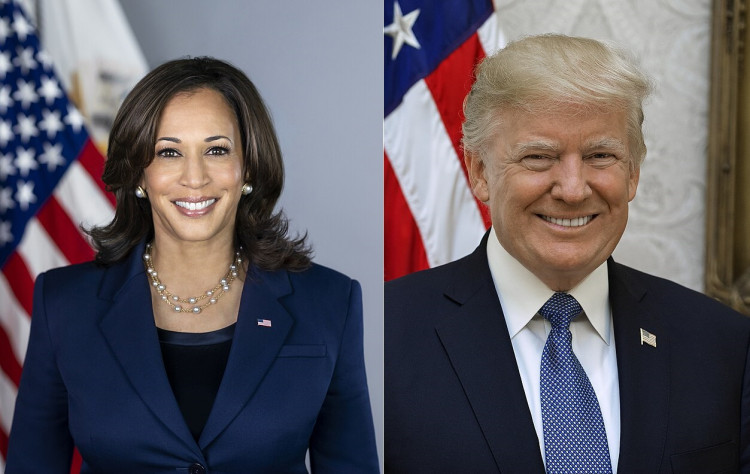Republican presidential candidate Donald Trump and Democratic Vice President Kamala Harris are poised to meet in their first and possibly only debate on Tuesday night, a high-stakes confrontation that could significantly impact the trajectory of the 2024 presidential race. The debate, hosted by ABC News, will take place at the National Constitution Center in Philadelphia and comes just eight weeks before the November 5 election, with both candidates locked in a tight contest that could swing either way.
The debate is particularly crucial for Harris, who remains less known to a significant portion of the electorate compared to the well-established Trump. Polls indicate that more than a quarter of likely voters feel they do not yet know enough about Harris, providing her with a critical opportunity to define herself on the national stage. The 90-minute debate offers Harris, a former prosecutor, the chance to make her case against Trump, whose felony convictions and controversial support for January 6 rioters have provided ample material for criticism.
For Trump, the debate is an opportunity to reinforce his campaign's focus on issues like illegal immigration and high consumer prices, which resonate strongly with his base. Advisers have urged him to stick to these topics, portraying Harris as too liberal for the country. However, Trump's tendency to engage in personal attacks, as seen in his previous debates, could backfire, particularly among undecided voters. "There's no floor for him in terms of how low he will go, and we should be prepared for that," Harris remarked in a recent radio interview.
The stakes are high for both candidates, as even a small shift in public opinion could alter the outcome in a race that is expected to come down to a handful of battleground states. Mitchell McKinney, a former adviser to the U.S. Commission on Presidential Debates, noted that Harris has more to gain but also more to lose, given her relative newness to many voters. "Viewers will be looking for where she stands on various issues, but just as important, they will be looking to see how she handles herself against Trump," McKinney said.
The debate's format is designed to minimize disruptions, with strict rules in place. There will be no live audience, and microphones will be muted when it is not a candidate's turn to speak. The candidates will stand behind their lecterns for the duration of the debate, and neither will be allowed to bring prewritten notes or props on stage. ABC's moderators, David Muir and Linsey Davis, will be the only ones permitted to ask questions, with no opportunity for the candidates to question each other directly.
Harris has been meticulously preparing for the debate, holding mock sessions in Pittsburgh since Thursday to simulate the debate environment. Philippe Reines, a former Hillary Clinton aide, has been playing the role of Trump in these rehearsals. In contrast, Trump has relied on informal discussions with advisers and campaign appearances to prepare, with former Democratic congresswoman Tulsi Gabbard offering him advice.
The debate is expected to cover a range of critical issues. Harris is likely to attack Trump on abortion, a topic that has been at the forefront of the Democratic agenda since the Supreme Court's 2022 decision to overturn Roe v. Wade, a ruling enabled by three Trump-appointed justices. Harris has consistently tied Trump to this ruling, labeling various state restrictions as "Trump abortion bans" and condemning them as extreme.
Trump, on the other hand, is expected to criticize the Biden administration's immigration policies and link Harris to what he describes as its failures, including record levels of migrant crossings. He will also likely blame Harris for high consumer prices, despite the administration's efforts to highlight strong job and wage growth.






